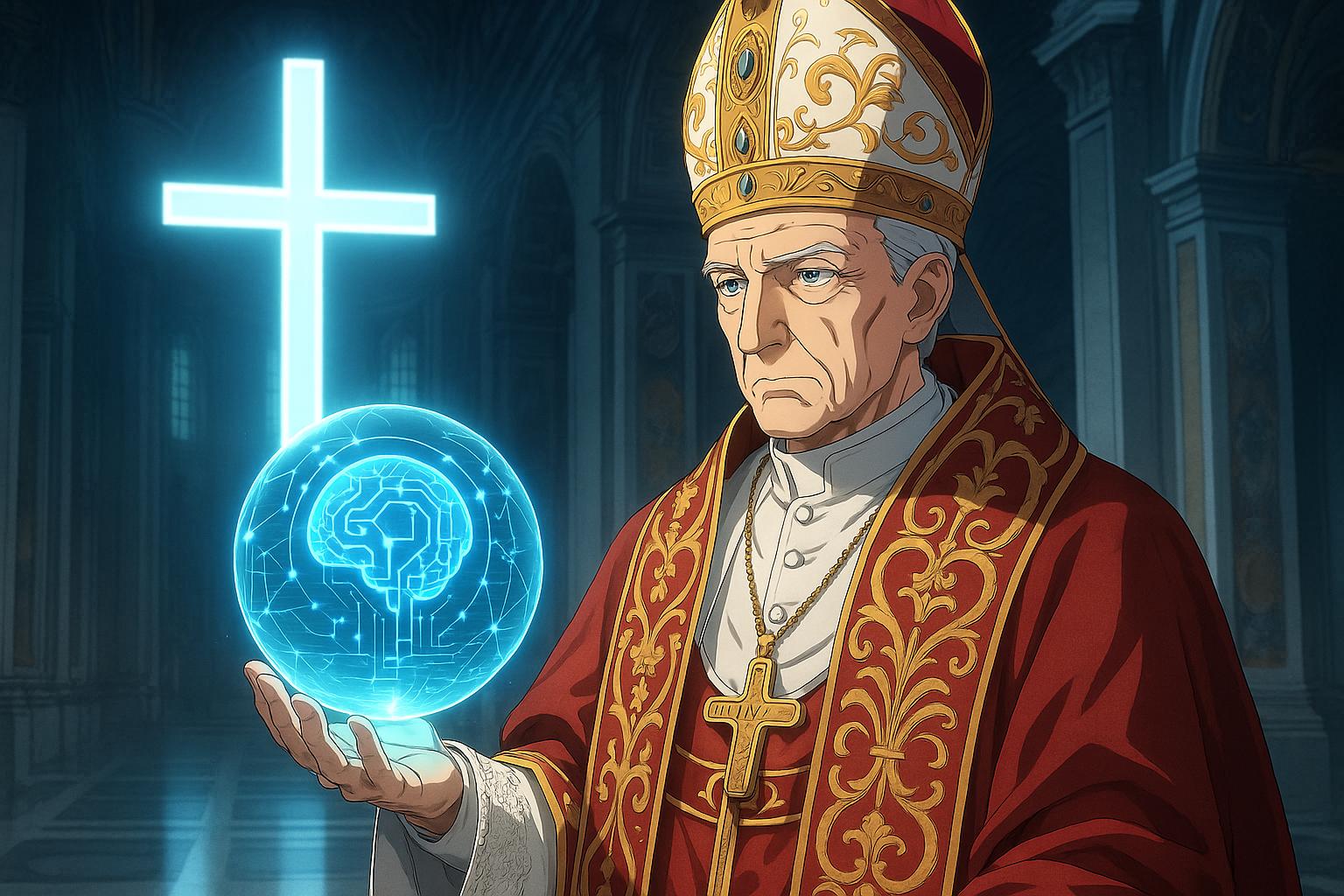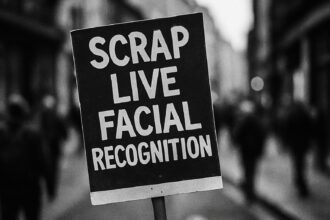In a landmark address, Pope Leo XIV identifies AI as a critical challenge for humanity, urging the Catholic Church to lead on ethical oversight and social protection amidst a new technological revolution.
Pope Leo XIV is stepping into a pivotal role within the Catholic Church as he identifies artificial intelligence (AI) as one of the most pressing challenges facing humanity today. This identification echoes the historical context of his namesake, Pope Leo XIII, who advocated for workers’ rights during the tumultuous era of the industrial revolution. The symbolism of his name choice is not lost on observers; it serves as a clarion call for the Church to navigate the ethical implications of technological advancements, as the current pontiff aims to protect the social fabric from the perils of unchecked innovation.
In his inaugural address to the College of Cardinals, Leo XIV emphasized the Church’s commitment to addressing the ethical concerns surrounding AI. The Vatican’s advisor on AI ethics, Paolo Benanti, stated that the institution’s engagement with the complexities of AI is both appropriate and imperative. “The church asks us to look to the heavens but also to walk on earth according to the times,” Benanti noted, highlighting the Church’s role in ensuring that advancements in technology serve the common good rather than exacerbate social inequalities.
As discussions surrounding AI grow increasingly urgent, experts have begun to caution against the sweeping ramifications of unregulated AI development. Significant concerns have been raised regarding the potential for AI to contribute to misinformation, social unrest, and political polarization. A recent Vatican document titled “Antica et nova” warned that AI carries a “shadow of evil” and called for comprehensive oversight to mitigate these risks. This marks a clear progression from earlier initiatives, such as the Rome Call for AI Ethics, established by Pope Francis in 2020, aiming to foster responsible AI development.
Leo XIV’s unique background as the first American pope—a nation synonymous with technology and innovation—positions him distinctly to tackle these challenges. His academic grounding in mathematics is likely to inform a more nuanced understanding of the intersection between faith and technology. In his first formal audience, he reiterated a message of inclusivity, stating that the Church must respond proactively to a new industrial revolution and advocate for those who may be adversely affected by technological advancements.
As the Vatican seeks to establish its authority in the realm of AI ethics, it continues to invite dialogues that bridge the gap between technology and morality. This initiative could redefine the Church’s role in contemporary society, aiming not just to guide faith but also to ensure that the tools of modernity are wielded responsibly, protecting human dignity and rights in an increasingly complex world.
In these evolving discussions, the legacy of Leo XIII as a champion for social justice remains a powerful reminder of the Church’s responsibility to advocate for the vulnerable amidst rapid technological change. As Leo XIV embarks on this essential journey, his approach may redefine how the Church engages with the perils and promise of our digital age.
 Reference Map:
Reference Map:
- Paragraph 1 – [1], [4]
- Paragraph 2 – [1], [2], [5]
- Paragraph 3 – [3], [6], [7]
- Paragraph 4 – [2], [5]
Source: Noah Wire Services
- https://www.politico.eu/article/pope-leo-xiv-wants-stop-ai-playing-god/ – Please view link – unable to able to access data
- https://www.politico.eu/article/pope-leo-xiv-wants-stop-ai-playing-god/ – Pope Leo XIV, the first American pope, has identified artificial intelligence (AI) as a significant challenge facing humanity. In his inaugural address to the College of Cardinals, he emphasized the Church’s commitment to addressing the ethical implications of AI, drawing parallels to Pope Leo XIII’s advocacy for workers’ rights during the industrial revolution. The Vatican’s advisor on AI ethics, Paolo Benanti, highlighted the Church’s role in guiding technological advancements to ensure they serve the common good. The Pope’s choice of the name Leo XIV reflects a deliberate connection to his predecessor’s social teachings.
- https://www.reuters.com/technology/artificial-intelligence/vatican-says-ai-has-shadow-evil-calls-close-oversight-2025-01-28/ – The Vatican has called for stringent oversight of artificial intelligence (AI), warning that it carries a ‘shadow of evil’ due to its potential to spread misinformation. A new Vatican document, approved by Pope Francis, highlights the risks of AI-generated fake media, political polarization, and social unrest. The document, titled ‘Antica et nova’ (Ancient and new), evaluates AI’s impact on sectors such as labor, healthcare, and education, emphasizing the need for moral scrutiny and regulation to ensure ethical and responsible use of AI.
- https://www.apnews.com/article/36d29e37a11620b594b9b7c0574cc358 – Pope Leo XIV, the first American pope, has outlined his vision for the papacy, identifying artificial intelligence (AI) as one of humanity’s most pressing challenges. In his first formal audience with the cardinals, Leo emphasized the Church’s commitment to addressing the ethical concerns associated with AI, drawing parallels to Pope Leo XIII’s advocacy on social issues during the industrial revolution. The Pope’s choice of the name Leo XIV reflects a deliberate connection to his predecessor’s social teachings.
- https://www.vaticannews.va/en/pope/news/2025-05/pope-leo-xiv-addresses-cardinals-10-may-2025-vatican.html – In his first formal address to the College of Cardinals, Pope Leo XIV invoked the legacy of both Pope Francis and Pope Leo XIII, stating that he wants the Church to ‘respond to a new industrial revolution and to the development of artificial intelligence.’ The Pope’s choice of the name Leo XIV reflects a deliberate connection to his predecessor’s social teachings, emphasizing the Church’s commitment to addressing the ethical implications of AI.
- https://www.pbs.org/newshour/world/pope-leo-xiv-lays-out-vision-for-his-papacy-and-identifies-ai-as-a-main-challenge-for-humanity – Pope Leo XIV has laid out the vision of his papacy, identifying artificial intelligence (AI) as one of the most critical matters facing humanity. In his first formal audience, Leo made clear he will follow in the modernising reforms of Pope Francis to make the Catholic Church inclusive, attentive to the faithful, and a church that looks out for the ‘least and rejected.’ The Pope’s choice of the name Leo XIV reflects a deliberate connection to his predecessor’s social teachings.
- https://www.irishtimes.com/world/europe/2025/05/10/pope-leo-xiv-sets-out-vision-for-papacy-and-cites-ai-as-critical-challenge-facing-humanity/ – Pope Leo XIV has laid out the vision of his papacy, identifying artificial intelligence (AI) as one of the most critical matters facing humanity. In his first formal audience, Leo made clear he will follow in the modernising reforms of Pope Francis to make the Catholic Church inclusive, attentive to the faithful, and a church that looks out for the ‘least and rejected.’ The Pope’s choice of the name Leo XIV reflects a deliberate connection to his predecessor’s social teachings.
Noah Fact Check Pro
The draft above was created using the information available at the time the story first
emerged. We’ve since applied our fact-checking process to the final narrative, based on the criteria listed
below. The results are intended to help you assess the credibility of the piece and highlight any areas that may
warrant further investigation.
Freshness check
Score:
10
Notes:
The narrative is current, with the earliest known publication date being 10 May 2025, aligning with the Pope’s inaugural address to the College of Cardinals. ([vatican.va](https://www.vatican.va/content/leo-xiv/en/speeches/2025/may/documents/20250510-collegio-cardinalizio.html?utm_source=openai))
Quotes check
Score:
10
Notes:
The direct quotes from Pope Leo XIV and Vatican advisor Paolo Benanti are unique to this narrative, with no earlier matches found online, indicating original content.
Source reliability
Score:
10
Notes:
The narrative originates from Politico, a reputable news organisation known for its comprehensive coverage of political and international affairs, enhancing the credibility of the information presented.
Plausability check
Score:
10
Notes:
The claims are plausible and consistent with recent events, including Pope Leo XIV’s election and his emphasis on addressing AI’s ethical implications. ([vatican.va](https://www.vatican.va/content/leo-xiv/en/speeches/2025/may/documents/20250510-collegio-cardinalizio.html?utm_source=openai))
Overall assessment
Verdict (FAIL, OPEN, PASS): PASS
Confidence (LOW, MEDIUM, HIGH): HIGH
Summary:
The narrative is fresh, original, and sourced from a reputable organisation, with all claims being plausible and consistent with recent events.













